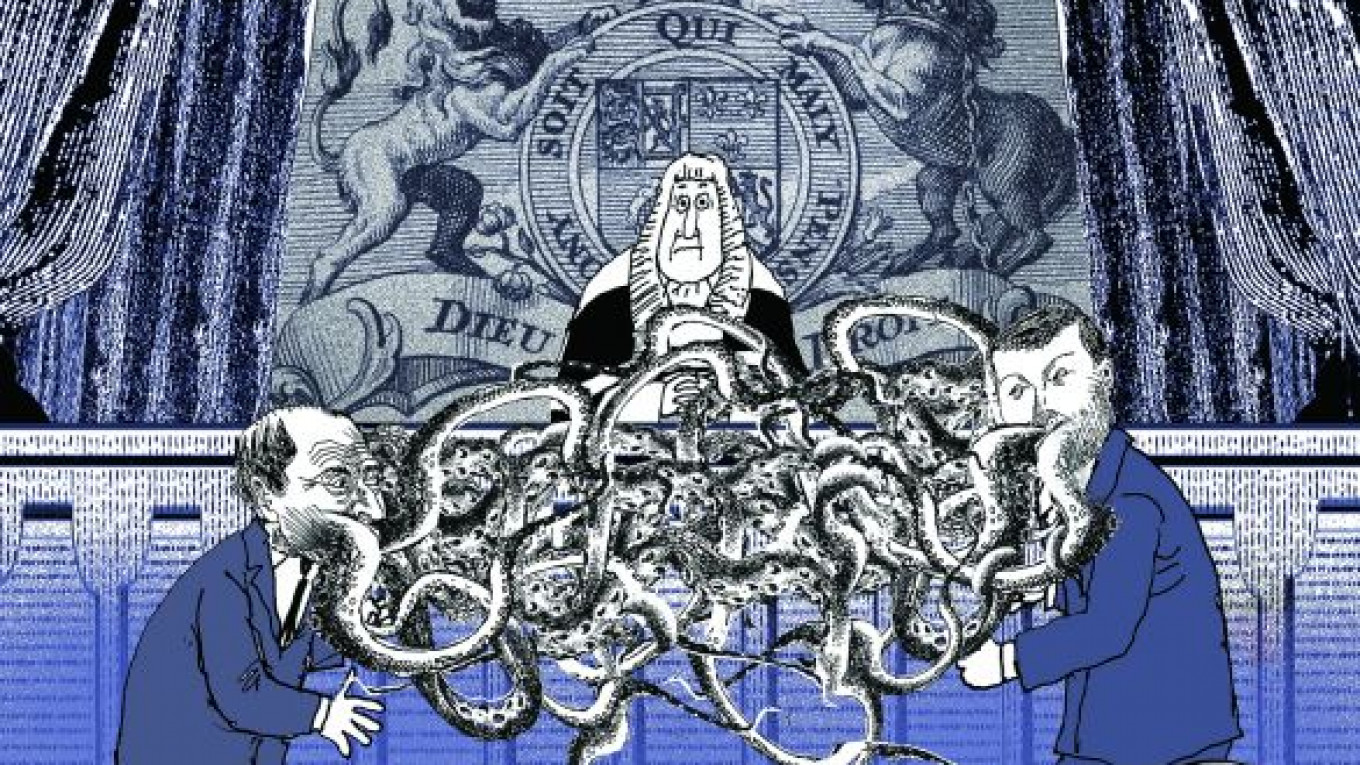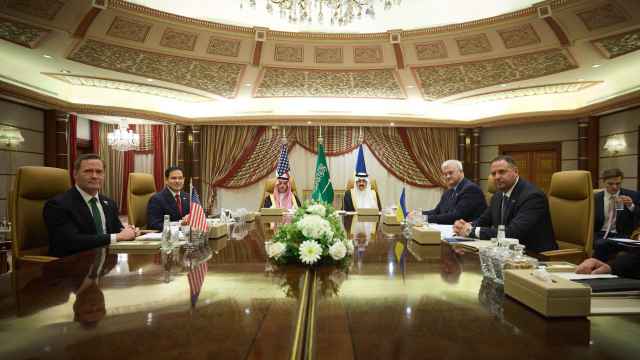I must say that I am very happy with Friday's decision by the London court. Quite unexpectedly for the entire Russian business community, Judge Elizabeth Gloster found that the plaintiff, self-exiled billionaire Boris Berezovsky, was an "unimpressive and inherently unreliable witness" who said "almost anything to support his case" and billionaire Roman Abramovich was a "truthful and on the whole reliable witness."
You were almost certainly amazed and cried out: "What? Berezovsky was not the owner of Sibneft?"
Actually, according to my sources, Abramovich just shrugged his shoulders when Berezovsky first filed the $5.6 billion lawsuit and told his lawyers, "No problem, guys. I admit that he was a shareholder, but I bought out his shares and I will affirm in court that I bought them for a decent price."
But his lawyers shook their heads and cried, "You don't understand! When you held the IPO for Sibneft you didn't state that Berezovsky was a shareholder. Any investor could sue you for that."
The London court upheld Abramovich's version of how the oil company was originally structured. In those days, when Berezovsky was a freewheeling and powerful Russian oligarch, he decided not to register Sibneft in his own name but under the name of a virtual unknown at the time, Roman Abramovich. It didn't matter whose name he used — it might as well have been Santa Claus for all it mattered back then. The unusual business structure only worked because Berezovsky was behind it.
You shouldn't lie, Mr. Berezovsky — not on the phone, and not in court.
The problem is that Berezovsky once successfully sued Forbes magazine for an article that called him the godfather of the Kremlin. In the affidavit, Berezovsky swore on his mother's grave that it was all a lie, that he did not own shares in Sibneft and that he had no foot in the Kremlin door with the goal of privatizing the company.
Now, once again in a London court, Berezovsky unblushingly testified that he did, in fact, own Sibneft shares, and he described in detail how he had managed to get his foot in the Kremlin door with the goal of privatizing the company.
You shouldn't lie, Mr. Berezovsky — not on the phone, and not in court.
The reason that I am happy with the court's decision is this: I personally have no doubt that Berezovsky really was a Sibneft shareholder. Moreover, Sibneft, once the country's fourth-largest oil company whose assets are now owned by state-controlled Gazprom Neft, was just the tip of the iceberg. In the primordial soup of Russia in the early 1990s, when power meant property and property was indefensible without political power, Berezovsky owned a stake in Russia itself — a blocking, if not a controlling, one.
Later, however, the structure of shareholding in Russia changed and Berezovsky lost his former status. Even though Abramovich could have given him the boot — as most Russian business raiders would have done in his place — Abramovich paid Berezovsky a hefty sum of money for his shares: $170 million for 49 percent of ORT (now Channel One) television, $1.3 billion for 50 percent of Sibneft and $500 million for 25 percent of RusAl.
As God is my witness, Abramovich was anything but stingy. Berezovsky had originally purchased Sibneft for $100 million, so the $1.3 billion for his 50 percent stake amounted to quite a profit. In a country where the price of your shares depends not on their market value but on the personal clout of the seller, Abramovich treated Berezovsky like royalty.
Incidentally, in a similar situation, Oleg Deripaska just flatly refused to pay anything to Michael Cherney. Within a month, those two businessmen will also be fighting over their 1990s assets in a London court.
During the recent lawsuit in London, Berezovsky demonstrated a remarkable ability to change his testimony every five minutes, saying whatever he thought would be most advantageous at any given moment and never worrying about the truth. That is what killed his chance of winning.
The really horrible part is that this trait once enabled Berezovsky to become the unofficial "landlord" of Russia. And it is this same trait that Russia's current leadership has inherited.
Yulia Latynina hosts a political talk show on Ekho Moskvy radio.
Related articles:
A Message from The Moscow Times:
Dear readers,
We are facing unprecedented challenges. Russia's Prosecutor General's Office has designated The Moscow Times as an "undesirable" organization, criminalizing our work and putting our staff at risk of prosecution. This follows our earlier unjust labeling as a "foreign agent."
These actions are direct attempts to silence independent journalism in Russia. The authorities claim our work "discredits the decisions of the Russian leadership." We see things differently: we strive to provide accurate, unbiased reporting on Russia.
We, the journalists of The Moscow Times, refuse to be silenced. But to continue our work, we need your help.
Your support, no matter how small, makes a world of difference. If you can, please support us monthly starting from just $2. It's quick to set up, and every contribution makes a significant impact.
By supporting The Moscow Times, you're defending open, independent journalism in the face of repression. Thank you for standing with us.
Remind me later.






